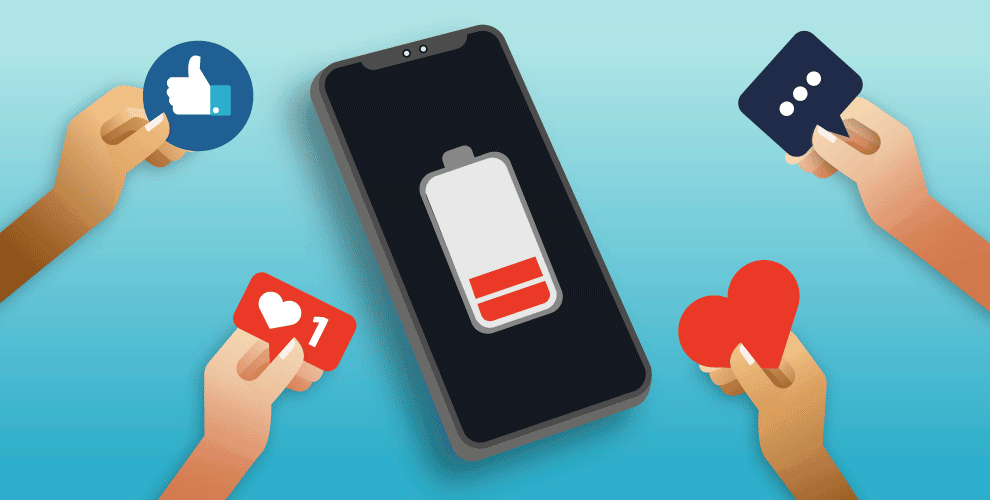Latest posts by Amy Licht (see all)
- BASIS Charter Schools: #1 Once Again! - April 23, 2024
- Introducing BASIS DC’s New Head of School, Calvery Cooper - April 10, 2024
- How BASIS DC’s House System Fosters Teamwork and Community - April 9, 2024

Social media can be an entertaining way to spend a little time. Who doesn’t love cute animal videos, photos from beautiful destinations, or checking in with friends? But at what point is it time to take a step break from these social platforms?
From its more modest beginnings of connecting with friends, social media has expanded into corporate advertisements, influencer promotions, news and current events, celebrity goings-on, activism, and much more. It’s become more of a lifestyle than a way to find out where all your old high school buddies ended up.
The New York Times recently reported significant increases in social media use over the last two years by younger and younger age groups. As social media has grown so have the dangers for children and teens. The amount of time they’re spending on social media, the type of content they are interacting with, the way that social media affects their mental health are some of the very real concerns that parents are grappling with.
But how fine of a line is there between harmless fun and unhealthy obsession? Here’s what to look out for if you think your child might be spending a little too much time on their favorite social media.
Identifying the warning signs of possible social media and screen addiction is a good first step. Ask yourself these questions:
If they are consistently comparing their life to an influencer’s or feeling the need to live up to a certain standard, it may be time to shift their perspective. Comparison is the thief of joy and this type of behavior can trigger depression and other mental health issues.
The compulsive “need” to be on their timelines and feeds that urgently could signal an addiction and lead to other negative behavior.
This, too, is a compulsion that can rear its ugly head. The idea that they somehow cannot get through an activity or moment without being able to access their feeds.
If they are choosing to spend time on their device versus spending time with friends and family, that could be a red flag. Replacing offscreen activities that they once enjoyed with more screen time could signal overuse.
Others generally see the things that we cannot. If friends or family are noticing large chunks of time spent on social platforms, it might be time to unplug.
Oversharing, and feeling the need to do so, is a common issue. It is often connected to an unhealthy desire for validation.
Knowing your social opponent is important as well. Diana Graber of Cyberwise, a website for adults who want to help young people use technology safely, suggests asking questions about why your student likes certain content, platforms, or a particular creator.
Frank discussions about the reality of influencers’ work and fake media can help set healthier expectations about what they are seeing online. For more insight into the phenomenon of social media influencing, check out HBO’s documentary, Fake Famous.
If you have determined that your student could have a problem, talk with your pediatrician or healthcare provider for advice.
If a little break is in order, check out our article on some fun challenges to give your student (and yourself!) a well-deserved digital detox.
Leave a Reply
You must be logged in to post a comment.